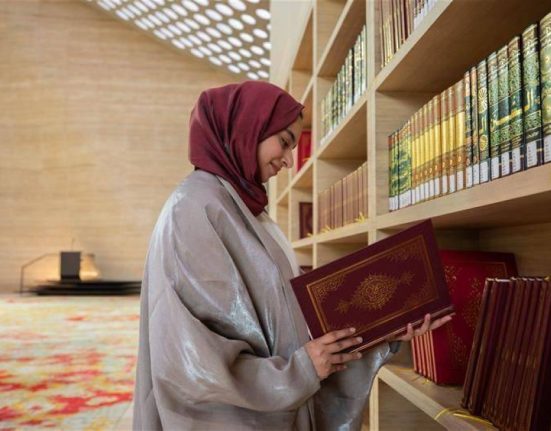Doha, Qatar – The Al-Mujadilah Center & Mosque for Women, under the umbrella of Qatar Foundation (QF), is bringing renewed focus to the study of Hadith this Spring, offering insightful programs that blend academic depth with spiritual enrichment. With a firm emphasis on women’s contributions to Islamic knowledge and tradition, the center is rolling out a second cycle of educational programs aimed at deepening the understanding of Hadith sciences, ethics, and the historical role of women in Islamic discourse.
Dr. Sohaira Siddiqui, Executive Director of Al-Mujadilah, emphasized that the Hadith—sayings, actions, and approvals of the Prophet Mohammed (Peace Be Upon Him)—remain a wellspring of spiritual and legal guidance for Muslims globally. She noted that the sessions being offered this cycle are designed not only to explore the foundations of Hadith scholarship, but also to elevate often-overlooked narratives, particularly those involving women.
“In the Prophetic Hadith, we find moments where Muslim women actively engaged in meaningful dialogue with the Prophet (PBUH), asking questions and seeking clarity on matters of worship, morality, and law,” Dr. Sohaira explained. “These interactions hold timeless lessons in both their content and the respectful, inquisitive etiquette—Adab—with which they were conducted. It is essential that we explore these stories, not just for historical interest, but for the ethical frameworks they present.”
Kicking off on May 3, the ‘Introduction to Hadith Sciences’ course will be facilitated by Dr. Mutaz Al-Khatib, a renowned scholar and Associate Professor of Methodology and Ethics at the Research Centre for Islamic Legislation and Ethics, based at Hamad Bin Khalifa University (HBKU), a member of QF. This foundational course, structured in two parts, seeks to demystify the intricate processes behind the collection, verification, and interpretation of Hadith. According to Dr. Mutaz, understanding the rigor behind Hadith authentication is crucial, as these texts stand next only to the Qur’an in providing Islamic legal and ethical directives.
“Every Muslim must be grounded in the teachings of the Prophet (PBUH), not just through blind reverence but through informed engagement,” Dr. Mutaz stated. “Hadith offer a roadmap for ethical living and must be studied in context, with balanced perspectives that reflect the Prophetic model.”
In tandem with the core Hadith program, Dr. Mutaz is also heading a unique seven-part lecture series titled ‘Women in Hadith,’ which commenced on April 23. The series probes into the moral and social representation of women in Prophetic traditions, spotlighting their roles in community life and in the preservation of Islamic teachings. The sessions are particularly timely, seeking to transcend polarizing interpretations of gender in Hadith literature by rooting the conversation in both historical evidence and thematic analysis.
“The purpose is to present a holistic understanding of how women were spoken about and how they themselves contributed to the Hadith corpus,” Dr. Mutaz elaborated. “Figures such as Aisha bint Abu Bakr, who alone narrated more than 2,000 Hadith, illustrate the intellectual and spiritual authority women held during and after the Prophet’s time.”
Expanding on this momentum, the center is also hosting a reflective series titled ‘Journaling the Seerah,’ led by Firsila Shah, a UK-based Islamic scholar with a Master’s degree in Islamic Studies from Birmingham University’s Selly Oak College. Launched last year and now returning by popular demand, the program began its latest cycle on April 22. It offers an immersive spiritual experience, guiding participants through the Medinan phase of the Prophet Mohammed’s (PBUH) life using journaling as a tool for introspection and deeper connection.
Firsila noted that the previous cycle focused on the Makkah era of the Seerah, highlighting resilience in the face of adversity—an enduring lesson for Muslim women today. This time around, the program turns attention to the Prophet’s time in Madinah, a period rich with examples of community building and jurisprudential development, where women’s participation was both visible and valued.
“Through this form of spiritual journaling, we uncover the wisdom and leadership demonstrated by the Prophet’s wives and the female companions,” Firsila explained. “Their legacy is not merely symbolic; it is educational. By reflecting on their roles, participants don’t just learn—they internalize and live the values embedded in Islamic history.”
With each program thoughtfully curated to ensure accessibility and scholarly integrity, Al-Mujadilah continues to cement its role as a pioneer in Islamic education for women in the Gulf region. Through a fusion of rigorous academic training and personal spiritual growth, the center reaffirms that Muslim women have always been, and must continue to be, active stewards of religious knowledge.

